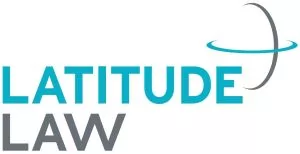Immigration fees have risen sharply in the past few years. Demand for immigration fee waivers is also on the up; but who qualifies and what does the Home Office guidance say?
As Shara Pledger wrote on this website earlier this year, fees for immigration applications have risen exponentially in recent years. Until 2003, in-country applications were, it's strange to recall, free of charge. By 2007 an in-country extension application cost £335; that same application today carries a headline fee of £1033, to which must normally be added the Immigration Health Surcharge, which from 1 October 2020 will be a hefty £624 per year of visa for most applicants.
For a typical extension of stay of 30 months, overall immigration fees add up to an eye-watering £2593; an increase of 774% since 2007.
And remember, this is per person - while children will be slightly discounted from October, the immense costs for a family are obvious. To compound matters, those families are often on a 10-year route to settlement which requires at least three such applications before indefinite leave to remain is obtained. Individual fees in excess of £10,000 are therefore the norm, even ignoring future increases.
The question of a fee waiver in respect of an immigration application is, consequently, becoming common.
What are the criteria to be met when seeking exemption from payment of Home Office fees?
First, a few parameters. A fee waiver can only be sought for certain applications to extend leave to remain; it is not available to settlement (indefinite leave to remain) applicants. Nor is a fee waiver available for an out-of-country visa application. And a fee waiver now covers the health surcharge, which is often higher than the application fee itself.
The Home Office publishes guidance on how fee waivers are to be decided. There are now three principal categories of application:
- Human rights cases
- Domestic abuse cases
- General circumstances cases, where a number of people are affected by a single event such as the Covid-19 pandemic
Here we take a brief look at the human rights case provisions. An application for a fee waiver is made online, in advance of the main application for leave to remain. It is not an application for leave (or permission to remain, as it will be termed from later in 2020), but if submitted before existing leave expires, the applicant's status in the UK is protected.
If a fee waiver is granted, a free application for permission to remain can be made; if it is refused, a paid application for permission to stay will be required. Note that, in either case, you must apply within 10 calendar days of your fee waiver decision.
The current version of the guidance, from June 2020, was drafted to comply with the findings of the Upper Tribunal in the case of R (on the application of Dzineku-Liggison and Others) v Secretary of State for the Home Department (Fee Waiver Guidance v3 unlawful) [2020] UKUT 00222 (IAC). It states that a fee waiver may be granted if the applicant is assessed and it is found that any of the following apply:
- they are not able to pay the fee
- they are destitute
- they are at risk of imminent destitution
- their income is not sufficient to meet a child's particular and additional needs
- they are faced with exceptional financial circumstances
It is up to the applicant to provide documentary evidence of these elements. The process is therefore intrusive, in that your finances (income and assets) are laid bare. You will have to send to the Home Office all personal bank statements, usually for a 6-month period preceding the date of application, proof of any savings, assets such as vehicles and electronic equipment. In addition, consider providing documents that show you're under threat of eviction for non-payment of rent; that you regularly use a food bank or access other charitable support, or receive financial help from your local authority, friends and relatives.
You will also be asked why you haven't been able to save towards your fees, having known you would be applying some years in advance; and you will be asked to explain any recent disposal of funds, or purchases considered unnecessary or extravagant.
As always, guidance confirms that "each case should be considered on its own merits".
For advice on your eligibility under fee waiver guidance, contact our team of immigration specialists by filling in the form below this post or by calling 0161 234 6800.
The content of this article is intended to provide a general guide to the subject matter. Specialist advice should be sought about your specific circumstances.

